Hybrid mattress vs memory foam – what are the differences, and which is best for you? We explain all
Our sleep expert weighs in on the hybrid mattress vs memory foam mattress debate

Amy Lockwood

Sign up to our newsletter for style inspiration, real homes, project and garden advice and shopping know-how
You are now subscribed
Your newsletter sign-up was successful
If you’re looking to buy a new mattress, then there’s a high chance that you've been pondering the pros and cons of investing in a hybrid mattress vs a memory foam mattress.
And this deliberation is wise, because finding the best mattress for your sleep style can make a big difference to your sleep quality.
So, to help you make the right decision for you, we've enlisted Ideal Home's Sleep Editor, plus some external mattress experts, to decode the key differences between a memory foam mattress and a hybrid mattress. And, ultimately, narrow down the best option for your needs.
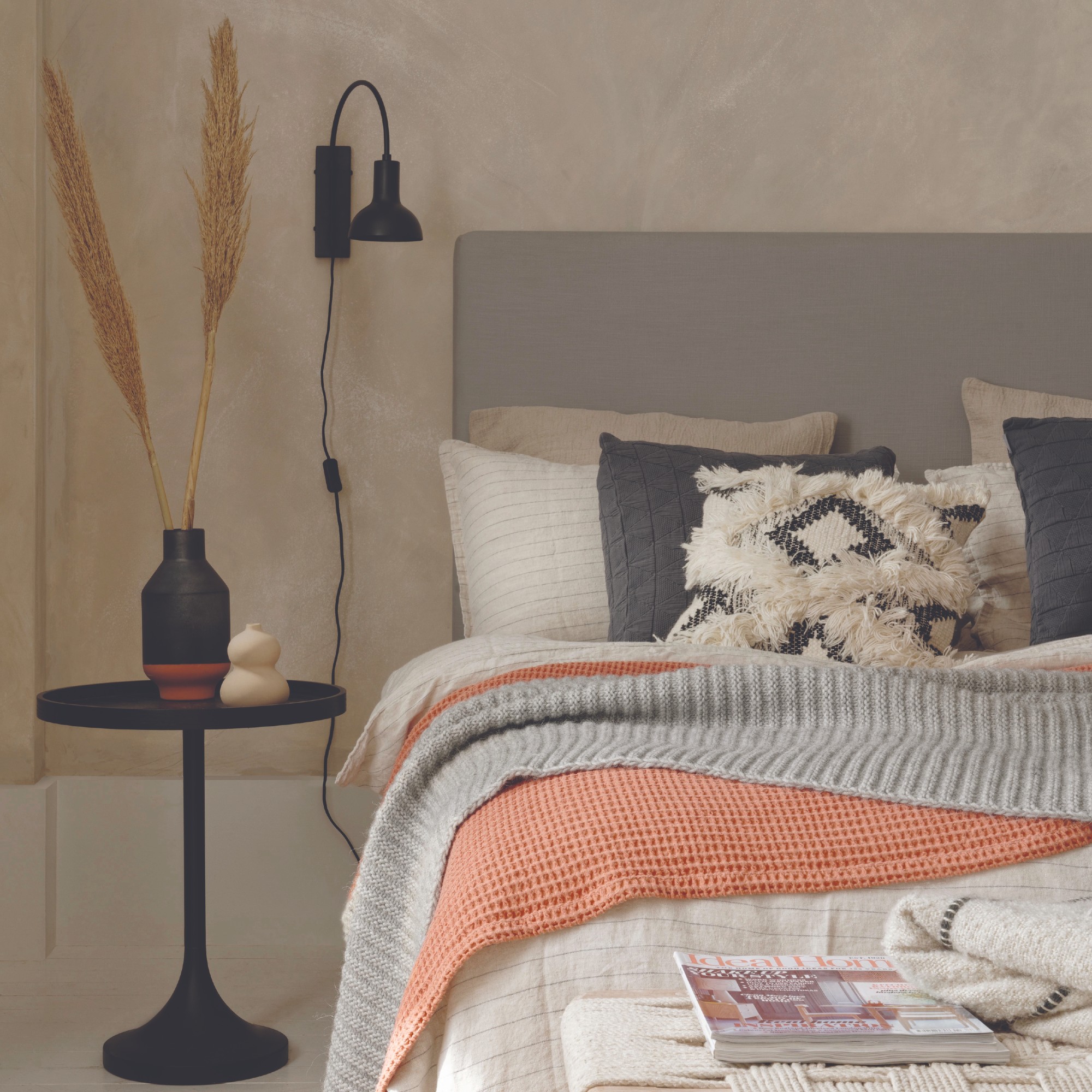
Hybrid mattress vs memory foam
First up, it's well worth getting clear on exactly what both types of mattress are. Then later we'll hone down the differences and which one is likely to help you sleep better depending on your body type, sleep style, and preferences.
What is a memory foam mattress?
Memory foam, sometimes also known as viscoelastic foam, is a dense synthetic material made from plastic polymers. It was first invented in the 1960s by NASA-funded researchers looking for a pressure-relieving material that they could use on spaceship seats.
When NASA eventually released vicoelastic into the public domain, mattress manufacturers saw its potential as a new type of sleep surface.
'Memory foam's popularity is down to its superb cushioning attributes, and the fact that its responsiveness to body heat means that it becomes more malleable once you're laid on it, cradling the body to offer great support' says Ideal Home's Sleep Editor, Amy Lockwood.
Sign up to our newsletter for style inspiration, real homes, project and garden advice and shopping know-how
'This makes memory foam especially popular with side sleepers, as the responsive sleep surface allows shoulders and hips to sink into the mattress, whilst the waist is also supported for good spinal alignment'.
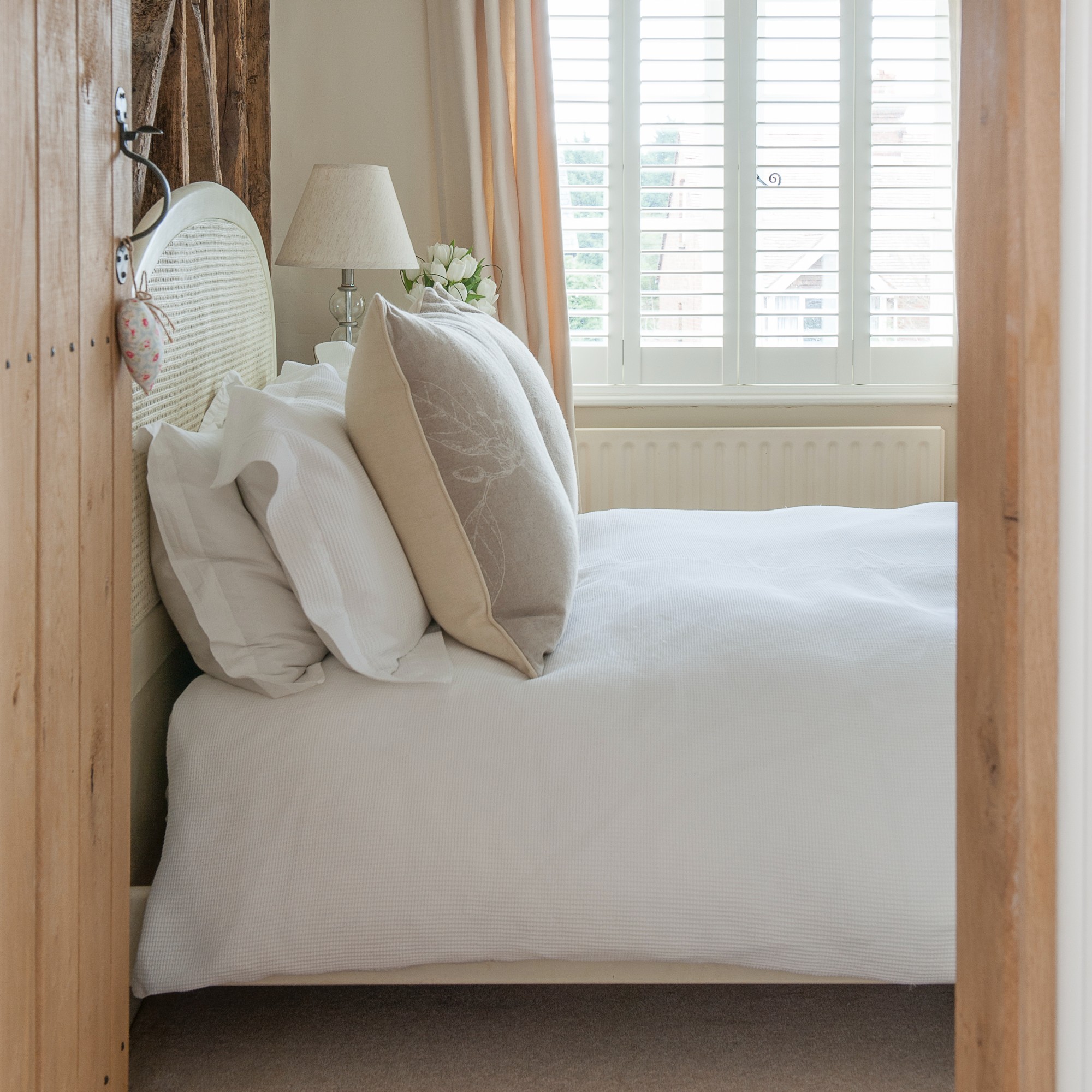
But, what is a memory foam mattress, exactly? Well, this is where the terminology can get a little tricky. Technically a 'memory foam mattress' is any mattress that uses memory foam within its construction.
That means a memory foam mattress can be an all-foam construction where a firmer foam base is topped with a more cushioning memory foam layer, or the term could also be used to mean a hybrid mattress that utilises springs for the base layer, but has a memory foam top layer.
However, for the purposes of this comparison we're assuming that 'memory foam mattress' refers to the all-foam option, that is, a mattress that is made from pure foam with no springs in sight and features a memory foam top layer.
What are the benefits of a memory foam mattress?
- Comfort: One of the main reasons people love memory foam mattresses is because of how comfortable they are. That’s due to the fact that the memory foam material naturally contours to the body’s shape and curves, which reduces the pressure on your spine and joints, making for a more comfortable night’s sleep.
- Great for side sleepers: Statistics show the majority of people sleep on their side, and memory foam mattresses are very well suited to these types of sleepers. Memory foam allows shoulders and hips to sink in to the mattress whilst supporting the waist, offering comfort and support at the same time.
- Reduced motion transfer: If you sleep in the same bed as a restless sleeper, a memory foam mattress could be the perfect option for you. That’s because the cushioning material keeps motion transfer to a minimum, unlike coil or spring mattresses. This means that you shouldn’t feel the bed move when the other person moves.
- Quiet: Anyone who has ever slept on a coil bed will know that they can be very noisy, especially as it gets older. As a memory foam mattress is made from foam, it shouldn’t make any noise at all when you twist and turn during the night.

What are the cons of a memory foam mattress?
- Claustrophobia: Although many people appreciate the fact that memory foam contours to their body shape, there are others who hate this feeling. For some, it can feel incredibly claustrophobic and uncomfortable.
- Lack of responsiveness: Because memory foam contours to your body, this can make it trickier to turn over in the night, especially if you have reduced mobility.
- Overheating: Older memory foam mattresses are notoriously bad at allowing the body to regulate its temperature, as the dense foam lacks breathability and so reflects body heat and humidity back towards the sleeper. Newer innovations seek to combat this, but people who run hot during the night can find they overheat.
- Can compress over time: Because it lacks springs, an all-foam mattress is more likely to compress over time, especially if you're a heavier weight sleeper.
- Heavy: Memory foam is so dense that it makes a mattress very heavy to move.
- Off-gassing: Memory foam mattress can have a chemical smell for a few days or weeks. This is due to the volatile organic compounds within the mattress. It’ll take a few days of off-gassing for these compounds to evaporate and for the smell to go away.
- Durability: Memory foam mattresses only have memory foam on one side and foam below, so they can't be flipped, only rotated, which can reduce their lifespan compared to a mattress that can be turned.
- Lack of sustainability: Memory foam isn't biodegradable, and it's tricky to recycle.

What is a hybrid mattress?
'A hybrid mattress can be made of many materials, but its key feature is that it's constructed from a base layer (or layers) of metal springs – be they open coil springs or pocket springs – which are then topped by a comfort layer' says our Sleep Editor Amy.
'This comfort layer can be made from memory foam, latex, polyester, or natural materials such as cotton, wool, hemp, or even silk fibres'.
‘A hybrid mattress marries together the best of both worlds,’ continues Victoria Cedeno, sleep and brand specialist at mattress manufacturer Zinus. ‘A hybrid mattress can provide bouncy, durable support, as well as enveloping, contoured comfort'.
What are the benefits of a hybrid mattress?
- Suit a lot of sleeping positions: A hybrid mattress can suit those who sleep on their sides or their backs, and if you opt for a firmer tension, also those who sleep on their front. This makes them a crowd pleaser and a good choice for couples with different sleeping positions.
- Responsive: Those springs mean that a hybrid mattress is pretty responsive, allowing you to turn over in bed easier, which is good for those with reduced mobility.
- Good for heavier sleepers: Spring support can mean hybrid mattresses are a good choice for those who might otherwise sink too deeply into a mattress
- Breathable: Although the comfort layer you opt for will impact a hybrid mattress's breathability, the inclusion of springs means that it's easier for air to circulate through the mattress. That means that body heat can dissipate and the body will find it easier to regulate its temperature, leading to a cooler sleep and less overheating.
- Durability: The springs also mean that a hybrid mattress is pretty durable and can withstand many years of use.

What are the cons of a hybrid mattress?
- Often more expensive: More parts mean more cost, so those springs usually mean a higher price point. And the more springs you opt for, the more the increase in price.
- Motion transfer: Because they have springs, a hybrid mattress can transfer movement across the mattress surface. So if you or your partner tend to toss and turn at night, your bouncing might disturb the other person. This tends to be more common with cheaper hybrid mattresses.
- Durability: Because hybrid mattresses only have a comfort layer on one side, they can't be flipped, only rotated, which can reduce their lifespan compared to a mattress that can be turned.
The final verdict: which one is better?
Now we’ve uncovered the pros and cons, do we have a winner in the hybrid mattress vs memory foam debate? Well, it all depends on what you value most in your mattress.
A memory foam mattress is usually the cheaper option, offers great cushioning – especially for side sleepers – and is brilliant at isolating movement. So if you have a partner who tosses and turns, this could be a great option for you. Plus, the lack of springs mean there is no chance of ending up with a squeaky mattress down the line.

However, if you're a heavier weight sleeper, tend to sleep warm, are sensitive to off-gassing, or have reduced mobility and so need a more responsive mattress, a memory foam option may not be for you.
Plus, 'If you're a front sleeper a memory foam mattress may not be the best choice', advises Ideal Home's Sleep Editor Amy. 'That's because memory foam's malleable nature means your hips will dip too low when lying on your front, putting pressure on the lower back. Instead, a firmer pocket spring or hybrid mattress is a better bet.
'However, I have known people who have changed their usual sleeping position after switching to a memory foam mattress as they suddenly find lying on their side much more comfortable'.

If you're concerned about the environmental impact of your mattress – as we should all be – then memory foam can also be one of the most difficult mattress types to dispose of responsibly.
You should always check the mattress manufacturer's guidance for how often you should rotate your mattress to prevent depressions from forming where you sleep, but still, no mattress lasts forever. And when its time to figure out how to get rid of your mattress, memory foam can be one of the hardest materials to recycle.
Plus, although we'd recommend adding one of the best mattress protectors to any mattress to protect it from dirt and stains, if you're pondering how to clean a mattress, then memory foam can be a little trickier as the foam doesn't do well when it's wet. That said, our guide to how to clean a memory foam mattress can help.
This is why, although hybrid mattresses are often a little more expensive than a memory foam alternative, they tend to appeal to a wider range of sleepers.
A hybrid mattress also offers more choice of materials, better breathability, and a more responsive, slightly bouncier feel. In fact, the responsiveness of hybrid mattresses means they're often recommended as the best mattress for sex!

'A hybrid mattress is a good all-rounder' says Amy. 'It offers some of the bounce of a traditional pocket spring mattress but with more cushioning on top. This can make them the Goldilocks of the mattress world, offering a happy medium between the pros and cons of a pure foam mattress and a sprung mattress'.
Although it depends on the quality of the mattress you invest in – yes, an expensive mattress is worth it! – a hybrid mattress can often last longer than a foam mattress, thanks to that spring support.
Wondering how often you should change a mattress? 'Mattress manufacturers tend to advise every 7-10 years, which is backed up by the Better Sleep Council', says Amy. This is a similar timeframe to how long memory foam mattresses last (according to most manufacturers). However, I've spent a lot of time looking at independent mattress reviews, and it does seem like lower quality memory foam mattresses often need replacing sooner rather than later, especially compared to hybrid options'.

Ultimately, there's no substitute for trying to get into store to test out a mattress for yourself, or taking advantage of any sleep trials on offer from the manufacturer of the mattress you're interested in. Sleep trials range from anywhere between 30 nights to 365 nights, and allow you to sleep on a mattress in your own home to assess if it's right for you.
To help narrow down the options, we've compiled three of the best memory foam mattresses and three of the best hybrid mattresses that Ideal Home has tested below.
Best memory foam mattresses
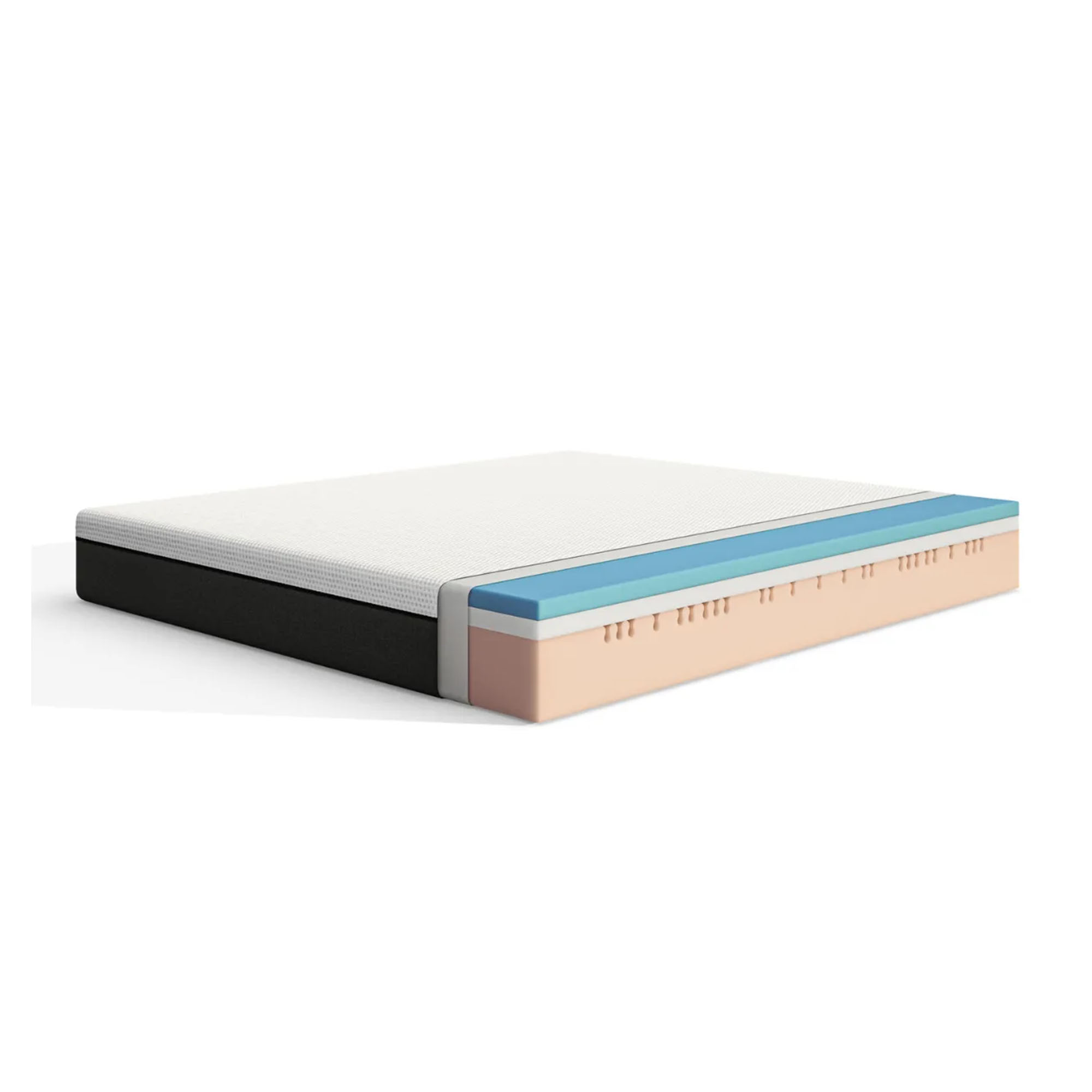
The Emma Original is an all-foam mattress topped with a layer of cushioning memory foam. It's affordable price tag makes it a bestseller, although our reviewers found it sleeps warm. Our Emma Original mattress review has more detail.
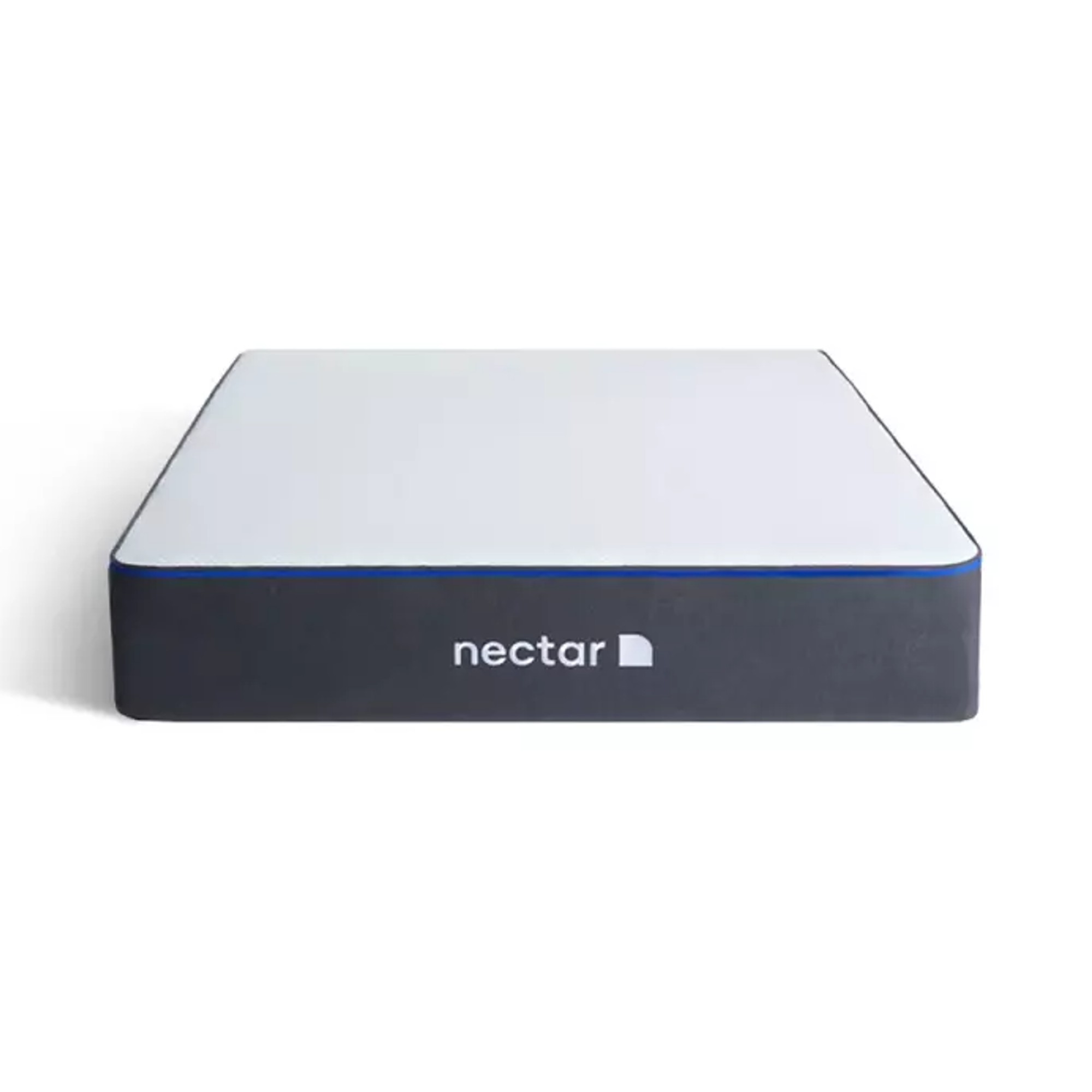
Nectar offers one of the longest sleep trials in the business on its memory foam mattress, with 365 nights to sleep on this mattress and work out if its cushioning surface provides your best-ever night's sleep.
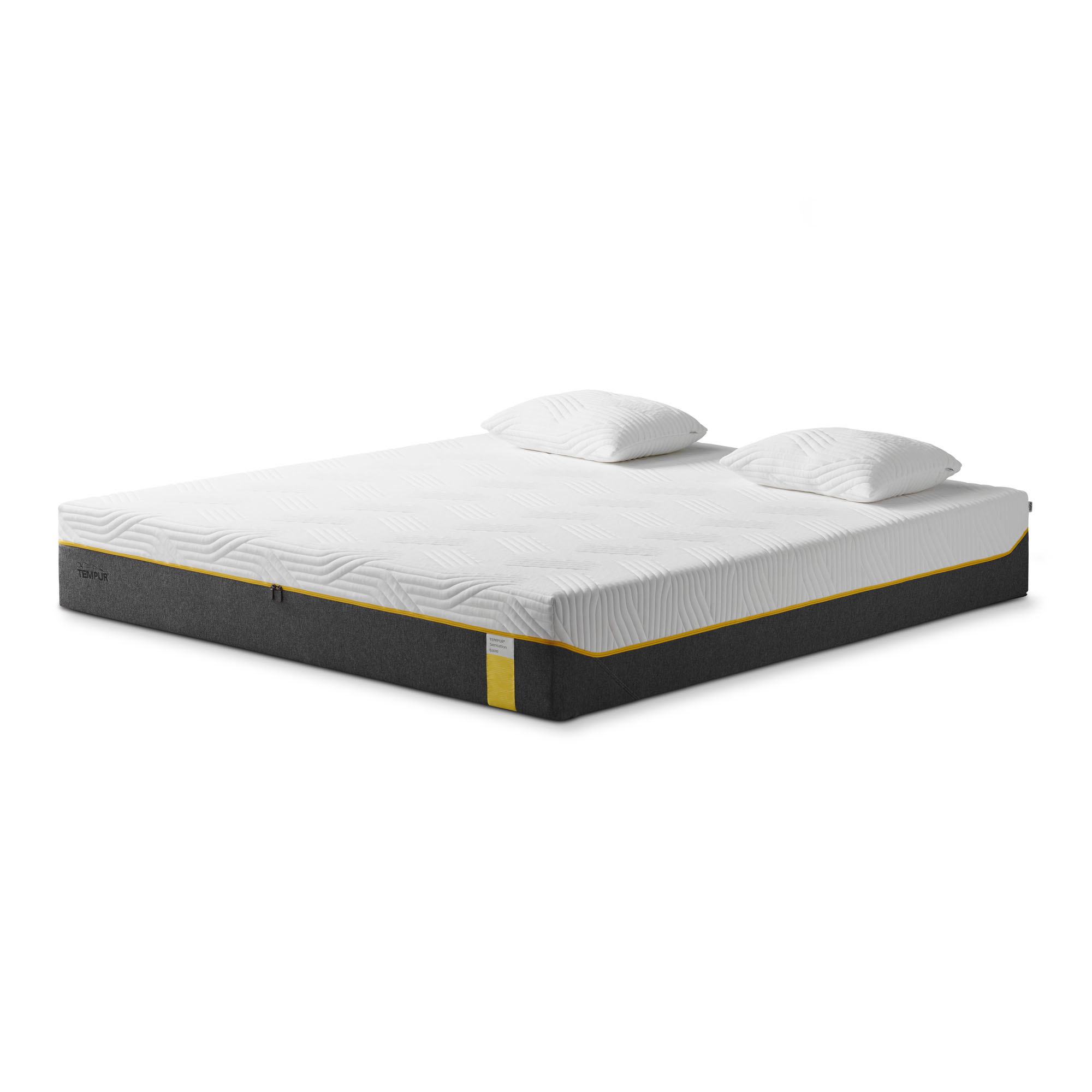
Most memory foam mattresses which take a one-size-fits-all approach to tension, but Tempur's memory foam comes in three different firmness options. Our Tempur Sensation mattress review tested out its firmest offering.
Best hybrid mattresses
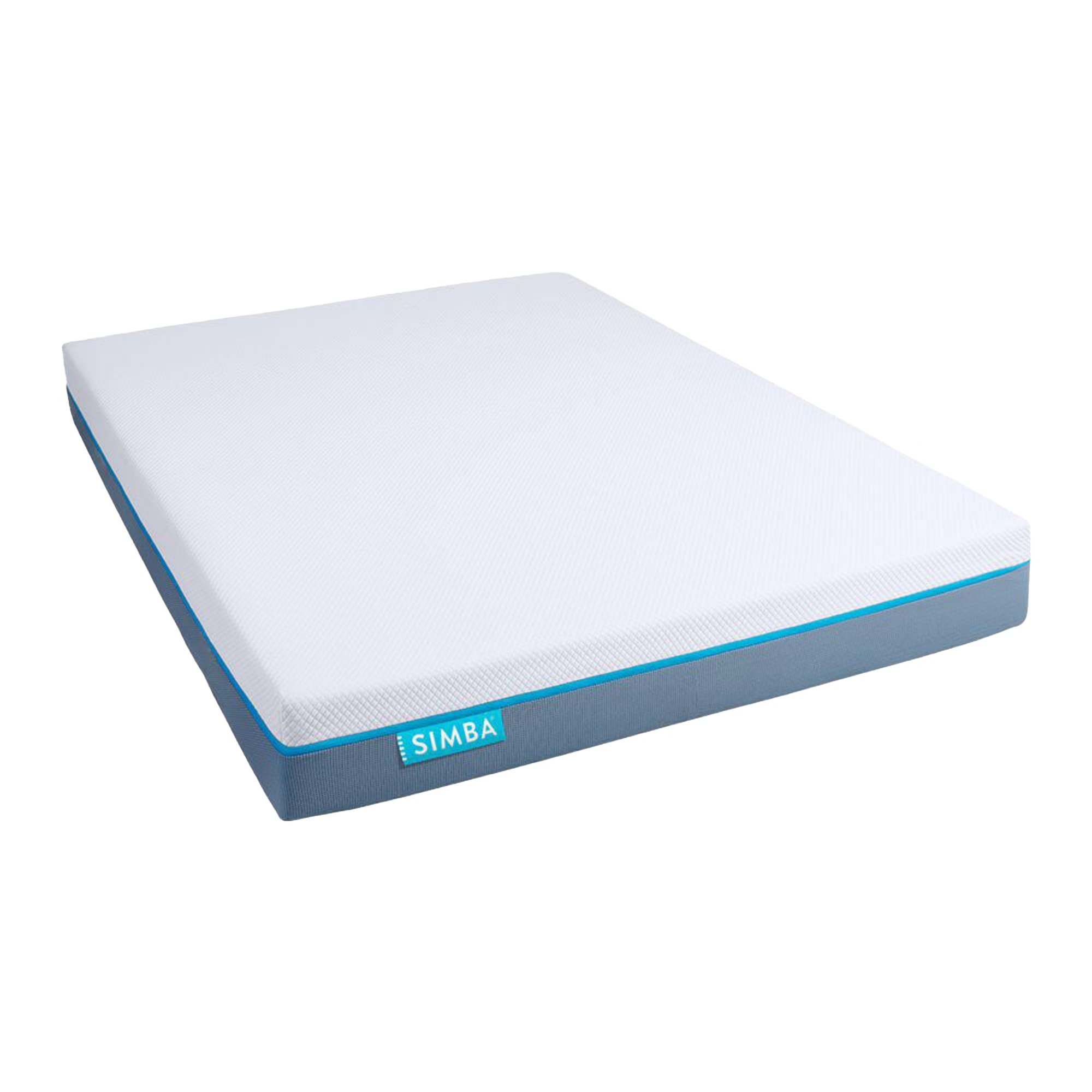
A bestseller for good reason, this popular hybrid mattress employs pocket springs for support with a cushioned open-cell (that means more breathable) memory foam top layer. Our Simba Hybrid mattress review has all of the detail.
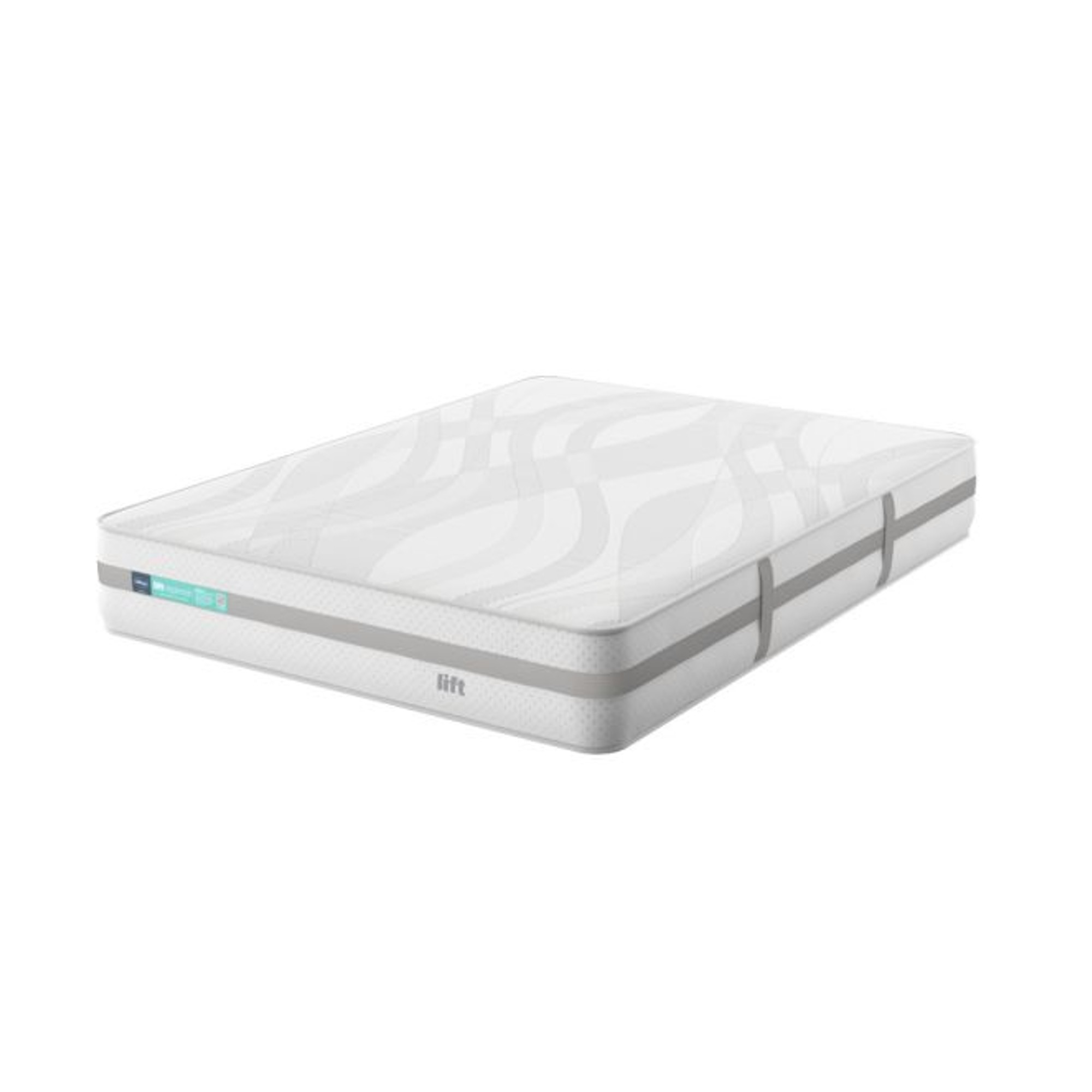
If you want a hybrid mattress that doesn't utilise memory foam for its uppermost layer, then this could be the one. It combines a pocket spring base with a latex upper which adds cushioning without the enveloping 'hug' of memory foam.
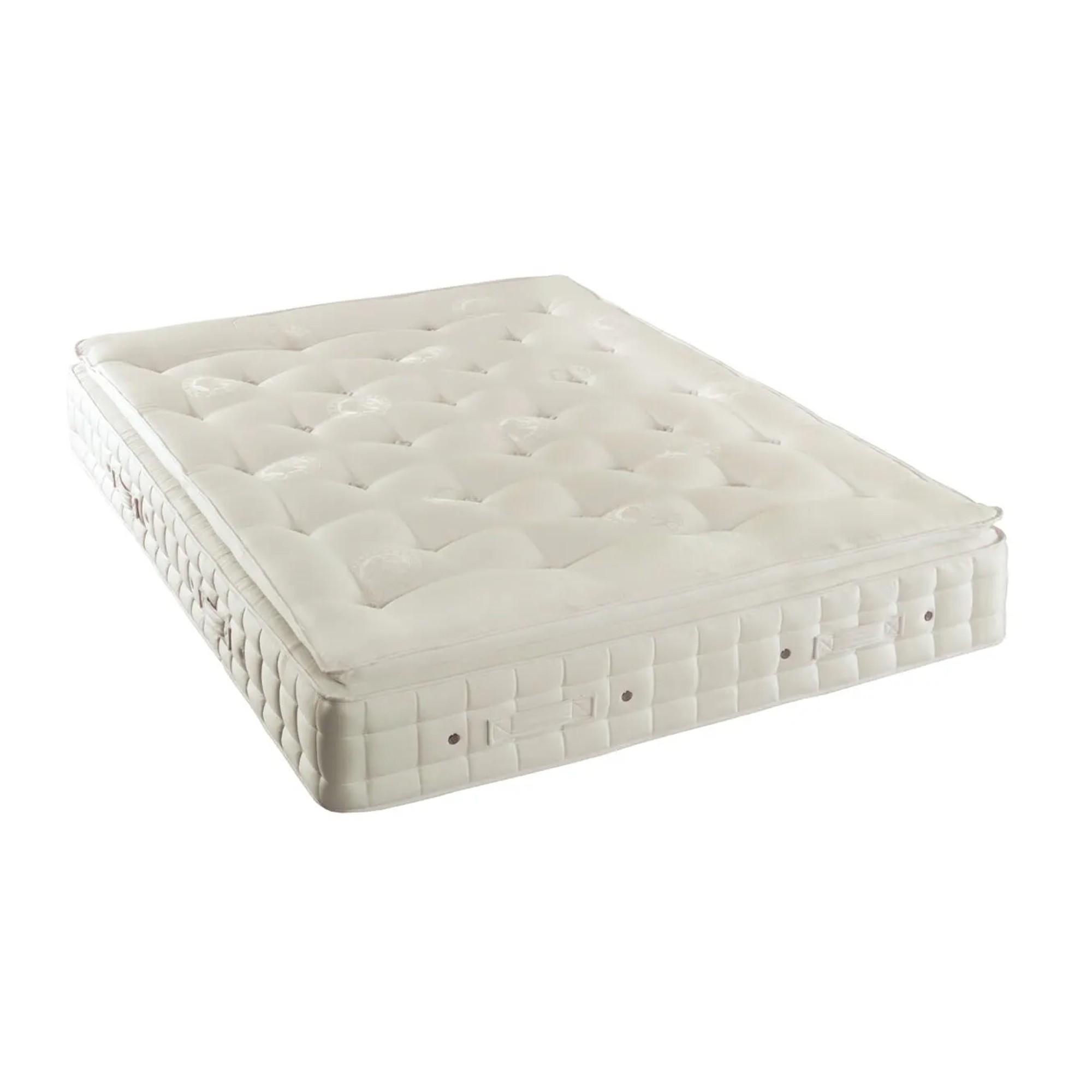
Officially, this is a 'pillow top' mattress, but that's really the same thing as a hybrid, combining pocket springs with a soft comfort layer filled with wool and plant fibres for breathability. Our Hypnos Pillow Top Select mattress review has the lowdown.
FAQs
Is a hybrid better than a memory foam?
Ultimately, whether a hybrid mattress is better than a memory foam mattress all depends on personal preference.
As Rebecca Swain, mattress expert at Winstons Beds explains, ‘There’s no right or wrong option when it comes to both memory foam and hybrid, but many prefer the hybrid version due to its advantages in getting a good night’s rest'.
These advantages include better support, breathability, durability, and better responsiveness (that bounce that makes it easier to turn over or switch position).
Why would I want a hybrid mattress?
Many people opt for a hybrid mattress because this mattress type mixes the best of both worlds. You get the bounce and responsiveness of a sprung mattress, plus a comfort layer on top that adds cushioning.
For instance, if you love the cradling affect of memory foam then you can opt for a hybrid mattress with a memory foam upper, such as the hugely popular Simba Hybrid Original mattress or Emma NextGen Premium mattress. These are bestsellers partly down to the fact that they combine the cushioning and motion isolating properties of a memory foam mattress, with better support, added breathability, and (often) a more durable construction thanks to that spring layer.
Are hybrid beds good for your back?
Yes, they are! As hybrid mattresses offer both springs and a cushioning top layer, they can deliver both support and comfort. That's why they're often considered one of the best mattresses for back pain.
As we've already mentioned, many mattresses now come with a sleep trial so that you can test out a mattress in your own home and figure out how comfortable it is for you. If you're still on the fence regarding the hybrid mattress vs memory foam mattress debate, we'd recommend giving this a go for yourself.

Lauren Bradbury has been the Content Editor for the House Manual section since January 2025 but worked with the team as a freelancer for a year and a half before that. She graduated with a Bachelor’s degree in English and Creative Writing from the University of Chichester in 2016. Then, she dipped her toe into the world of content writing, primarily focusing on home content. After years of agency work, she decided to take the plunge and become a full-time freelancer for online publications, including Real Homes and Ideal Home, before taking on this permanent role. Now, she spends her days searching for the best decluttering and cleaning hacks and creating handy how-to guides for homeowners and renters alike, as well as testing vacuums as part of her role as the Ideal Home Certified Expert in Training on Vacuums, having spent over 110 hours testing different vacuum models to date!
- Amy LockwoodSleep Editor